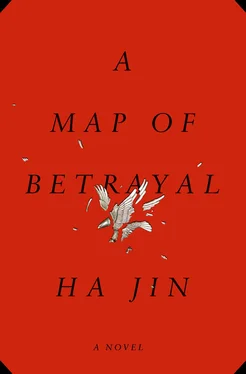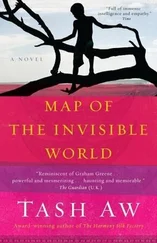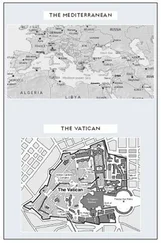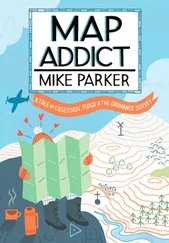That was news to me. Uncle Weiren came back and handed me a white envelope, partly yellowed with damp. As I took out a pen to copy the address, he stopped me, saying I could keep the letter. I thanked him and put it into my pocket. We went on conversing about the other Shang families in the village, some of whom were rather well-off now. I told them I was living and working in Beijing, though I’d grown up overseas, having a white mother. Minmin and I exchanged glances, her eyes rolling as if to assure me that she wouldn’t breathe a word about my American citizenship. Such a revelation would only have complicated matters, drawing officials and even the police to the village, so I’d better let them assume I was a Chinese citizen and had lived in China for many years. I said my father had remarried because the Party wanted him to start another family abroad. When I told them that he had died in America long ago although he’d planned to retire back to China, they fell silent and didn’t raise another question.
I learned that my grandparents’ graves were outside the village. “Can I go and pay my respects to them?” I asked Uncle Weiren.
He appreciated the gesture, so we two set out with a shovel, a bunch of incense sticks, and a basket packed by Aunt Ning. Mai left for home, saying he had a business meeting; he owned two chicken farms and planned to start another one. Minmin went with him to fetch her car. She would stay behind to rest some since Uncle Weiren and I would soon come back for lunch. We were walking east and passed a poplar grove partly swathed in haze, some of the boles glowing silver in the sunlight and some of the leaves still damp with dew. Uncle Weiren told me that poplars had been in fashion in recent years because the trees were hardy and, fond of sandy soil, they grew fast (they can be ready for felling in eight or nine years), and the timber could bring a good price. Many families in the village had cleared patches of wild land and planted them with poplars. An acre could produce more than two hundred trees. Uncle Weiren had two acres of them, which was a virtually risk-free investment after the saplings had survived the first winter and spring. Once his poplars grew up and he sold the timber, he planned to expand his house to two stories. As long as the Party didn’t change its current agricultural policies, he felt that the country folks’ livelihood might improve some. In spite of my skepticism, I didn’t contradict him. I had read that some poor families in the countryside couldn’t pay taxes and abandoned their homes.
I didn’t see a single child, and only a few middle-aged men and women greeted Uncle Weiren. When I asked him why there were so few children in the village, he said that all the young people had left to work in the cities and would come back only once a year, mostly at the Spring Festival. People didn’t want to raise many children anymore, especially those young couples who already had a son. The one-child policy was still in place, but you might have more children if you were willing to pay heavy fines. “It costs too much to bring up kids,” he continued. “There’re still five or six tots in the village, in their grandparents’ care. The others are all gone. Our elementary school closed down two years ago ’cause there weren’t enough pupils. Parents pull their kids out of school earlier nowadays, even before they finish middle school.”
“They won’t send them to college anymore?” I asked.
“Way too expensive. Besides, after college they can’t find good jobs. So why even bother?”
We passed a few mud and straw adobes, dilapidated and deserted, some overgrown with dried brambles. Uncle Weiren was silent while I lapsed into thought. This place seemed to be dying and might disappear in twenty years. Clearly there were people who’d gotten a raw deal in the national economic boom. In some poor areas more villagers had uprooted themselves to make a living in cities, and they might never return to their native places. I had read that in some regions in western China, entire villages were deserted. The demise of the village would surely transform the country from within. But how would this massive migration affect Chinese society as a whole? Who would benefit? At whose expense? What might be the consequences in the long run?
The decrepit scene reminded me of eighteenth-century Europe, where rural people were driven off their land and drawn to industrial centers to work in factories. China was a capitalist country in the making and was relentlessly consuming the young blood from the countryside.
My grandparents’ graves were at the base of a foothill, where all the Shangs of the village were buried. Hundreds of mounds of earth spread to the side of a dried brook, many of them covered by wild grass. A few had wooden signs at the heads, but there wasn’t a single headstone. We stopped at a pair of graves near the southern end of the burial ground. These two were unmarked and appeared identical with some others.
“Here they are,” Uncle Weiren said.
“How can you tell?” I asked.
“We come here every spring to clean them up.”
Indeed, the two graves looked just tended, so I added a few shovelfuls of earth to them. We lit the joss sticks and planted them before the mounds. Out of the basket Uncle Weiren took a half bottle of liquor and poured some in front of the incense. In the alcohol something whitish swayed like a stringy ginseng root; then I was astonished to see that it was a tiny snake. Why did he offer snake liquor to my grandparents? Grandma couldn’t have been fond of drinking, could she?
Uncle Weiren saw the shock on my face and said, “This is good stuff for old folks who have joint pains and backache. Your grandparents both had arthritis, I remember. I use a cup of this drink every day, so I thought they might like it too.”
I didn’t know what to make of that. Probably the bottle of liquor had just been handy. He could have brought along a new bottle without a snake in it. In any case, I thanked him, as if these graves had been my charge, not that of some relatives I’d never met. I took the apples and pears out of the basket and placed them in front of the graves, on two small flattish rocks I had picked up nearby. I stood and stepped aside to gather my courage. Then I returned to the graves, held my hands together before my chest, and said in Mandarin: “Dear Grandpa and Grandma, I came all the way to see you. We live far away, thousands of miles from here. My dad, your son, cannot come, so I am here on his behalf. He missed you and loved you. I love you too. Please forget your worries and rest in peace …”
As I was speaking, tears trickled down my cheeks. There was so much I didn’t know how to say. I knew they had died in 1960, within three months of each other. My father had recorded this in his diary. After being informed of their deaths, he was laid up with grief in a hotel room in Hong Kong for two days.
To our right, about twenty feet away, was a pile of earth like a giant loaf. It had also been tended recently.
“That’s your brother’s grave,” Uncle Weiren said.
I went over and added a few shovels of fresh dirt, then left an apple and a pear at the front of his grave. Though heavyhearted, I couldn’t conjure up an image of him. If only I’d seen his photo.
Uncle Weiren and I went back to the house for lunch, which consisted of dough flake soup, fried toon leaves, and scrambled eggs. I was grateful for the simple meal, though I knew it might have become a banquet if I were a male family member. Both Minmin and I enjoyed the lozenge-shaped flakes used in place of noodles in the soup. Our good appetite pleased Aunt Ning, who continued to ladle more into our bowls. On the back of her hand was a tiny burn covered with ointment to prevent a blister from forming. This was the first time I’d eaten toon leaves, which were fragrant and had a mellow aftertaste. Their texture in the mouth reminded me of collard greens.
Читать дальше











